Thrones fans should be very worried about Ser Davos' announcement last week
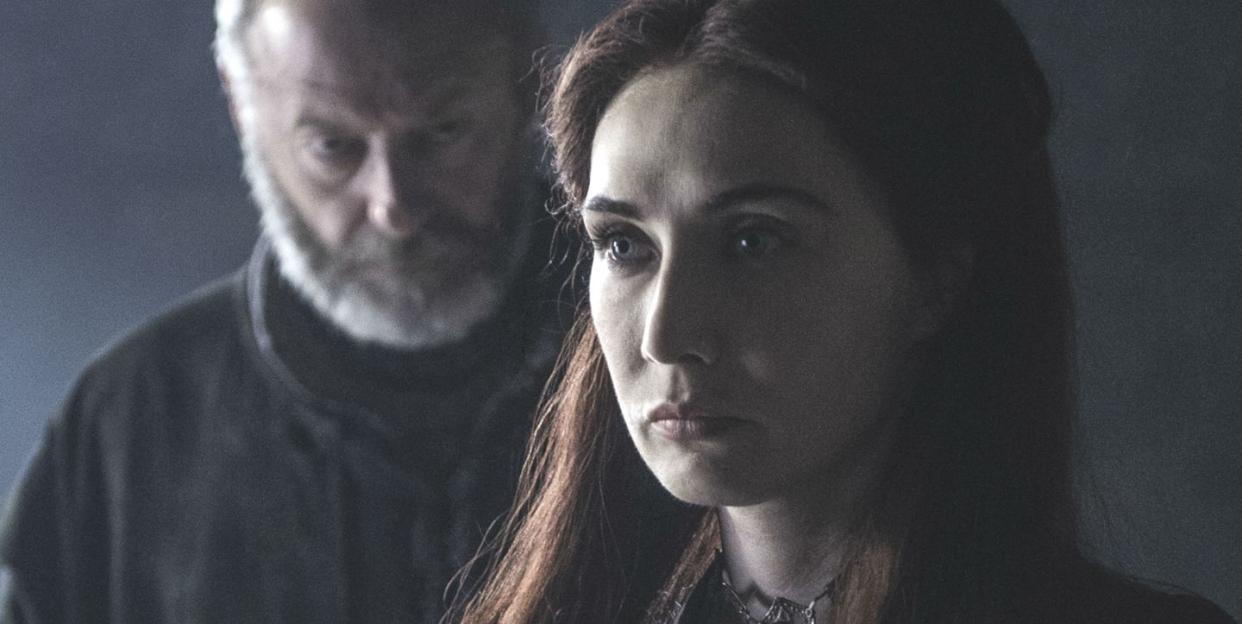
"The Lord of Light – we play his game for him, we fight his war and win, and then he f**ks off… no signs, no blessings. Who knows what he wants?"
"I don’t imagine thinking about that subject will leave you any happier than before."
For Game of Thrones fans watching 'The Last of the Starks', the above exchange between Davos Seaworth (Liam Cunningham) and Tyrion Lannister (Peter Dinklage) couldn't help but feel like a knowing nod from showrunners David Benioff and Dan Weiss, and the message is clear:
"All that mystical mumbo-jumbo? Don't worry about it."
For some, it's taking a little while to sink in: there are still wild theories being put about that Bran Stark (Isaac Hempstead Wright) must be the Lord of Light. (Because he hasn't done anything interesting yet this season, and if Bran's not the Night King, then he's gotta be R'hllor, right?)

But with just two episodes of HBO's fantasy saga left, it's looking increasingly that the Lord of Light, and his followers, won't actually play any significant part in proceedings.
Melisandre (Carice van Houten) is dead. So is Beric Dondarrion (Richard Dormer). Thoros of Myr (Paul Kaye) never even made it to the final season. And Stannis Baratheon (Stephen Dillane) – who memorably sacrificed his daughter's life to win approval from the Lord of Light – has been six feet under for yonks.
Some might feel cheated but the Lord of Light narrative was, in truth, never the most important part of Game of Thrones – at least on television.
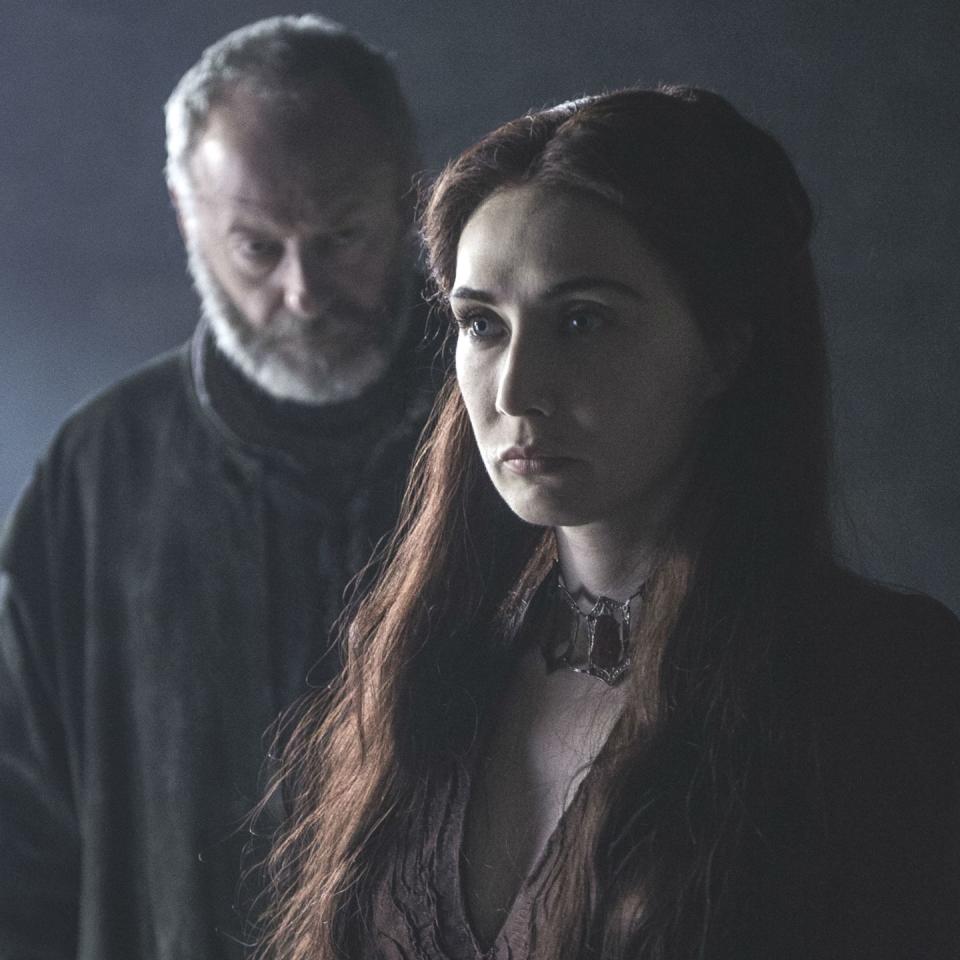
There have certainly been occasions when the Lord of Light's magic made a significant impact on the show's narrative: Renly Baratheon's death, Jon Snow's resurrection, Melisandre lighting up the trenches of Winterfell, Beric's unnaturally prolonged life allowing him to save Arya Stark...
But you can count these instances on one hand. Primarily, as a driving force for several characters, this nuanced fictional religion has served to add texture and credibility to the Seven Kingdoms. It's background detail, not the A-story.
So, when it comes to the show's final act, was the Red God just a red herring all along?
What about the whole 'Prince that was Promised' thing? A prophesied saviour in the religion of the Lord of Light who, it was said, would use Lightbringer (a sword made of living fire) to combat an impending darkness.
With the word for "prince" being gender neutral in High Valyrian – they expressly pointed out – said saviour could have been either man or woman, with everyone from Jon Snow to Jaime Lannister to Daenerys Targaryen to the flippin' Hound being put forward as possible candidates.
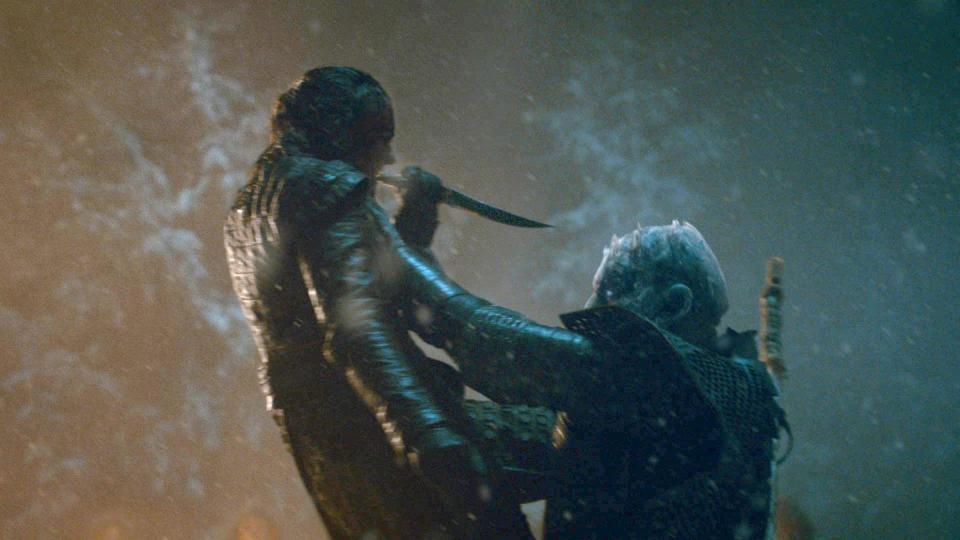
But with fans assuming that the "impending darkness" referred to the Night King and his forces, some were miffed when Arya Stark plunged her Valyrian steel dagger into the villain's gut in 'The Long Night'.
She didn't fit the bill to be Azor Ahai, y'see – another Lord of Light prophecy, which stated that a reincarnation of this mythical figure would be born from the line of House Targaryen, that they'd be "born again amidst smoke and salt", that they would "wake dragons out of stone" and would "draw from the fire" that aforementioned burning sword.
Some are still holding on to the possibility that the 'Prince/Princess that was Promised' and 'Azor Ahai' might be two separate beings, with Arya being the former and the latter yet to be revealed. But Melisandre frequently referred to the two interchangeably, so no dice there.
More and more, it's appearing as though this prophecy, along with the rest of the Lord of Light story thread, was just a colourful bit of misdirection: something to add a bit of spice to Game of Thrones, and a bit of eye-catching magic where narratively useful, but not something we should expect to play a huge part in the show's climax.
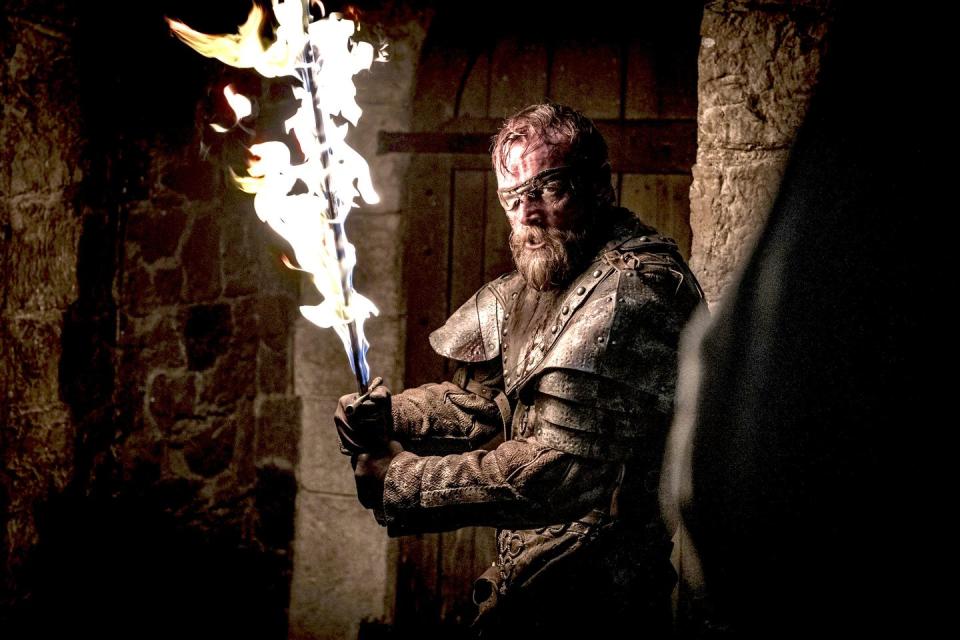
The "New Gods" – the main religion of the Seven Kingdoms – have had even less tangible impact across the series.
Looking back at archive interviews with showrunners Benioff and Weiss, this turn away from magic and prophecies and mystical lore is perhaps not all that surprising. In 2014, Benioff told Vanity Fair that he and Weiss were concerned about "the danger of magic taking over the [show's] story".
"One thing that drew us to the books is that – even though they are fantasy books and even though there are dragons and white walkers and so forth – it feels very much a human story," he said.
"George [RR Martin] was careful, I think, in the use of magic. And we don’t want it to take up too large a role on the show."
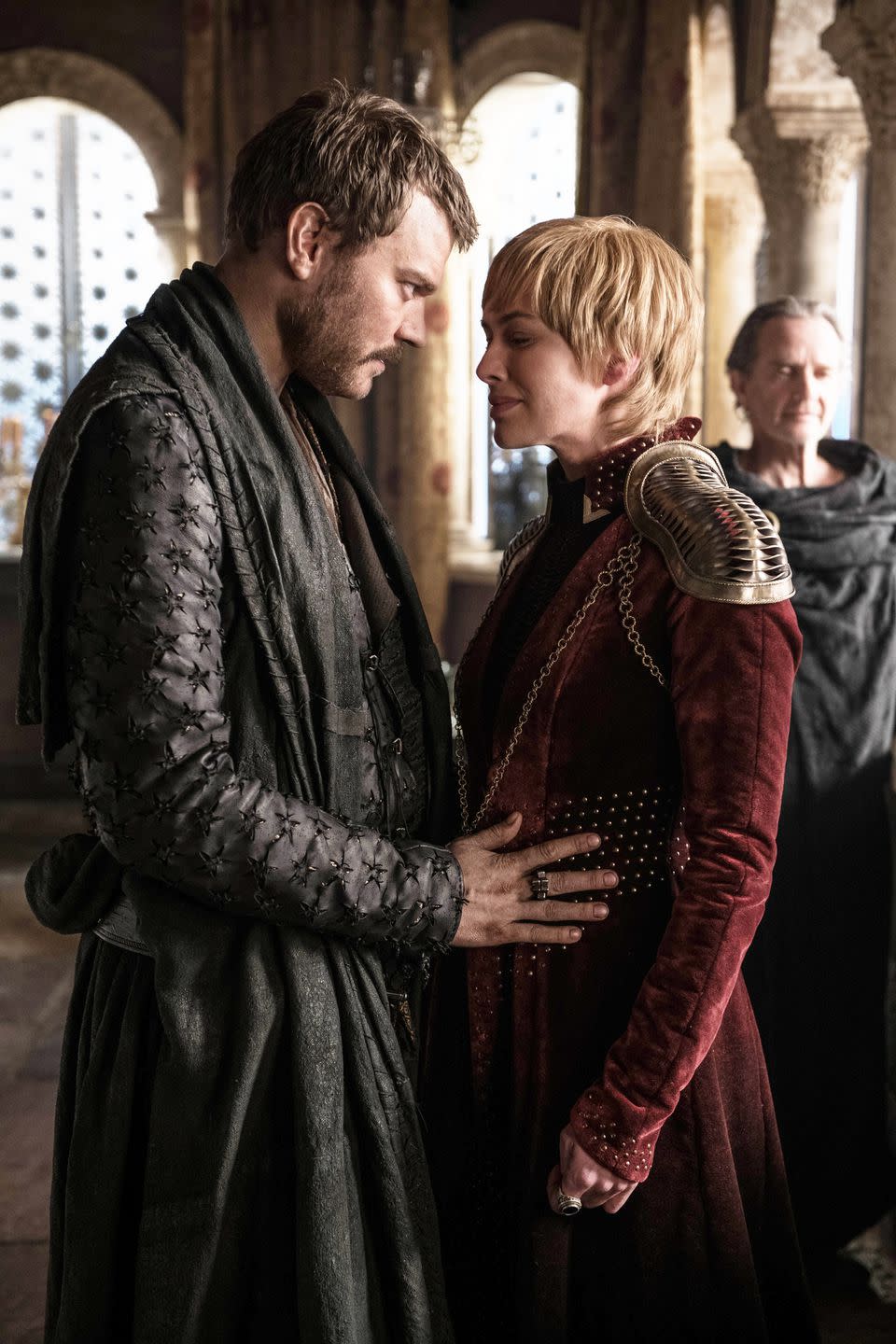
We earn a commission for products purchased through some links in this article.
One bit of fan speculation that's red-hot right now – that Cersei Lannister will meet her end at the hands of the 'Valonqar' next episode – is a prophecy from a fortune teller which never even appeared on-screen, only in Martin's books. (In the series, Maggy the woods witch only referred to her marriage, the death of her children and the arrival of a younger, more beautiful Queen to threaten her.)
For all our supposition and guesswork, this notion – that the "little brother" would strangle Cersei to death – could well be one more fantastical thread that ends up being ignored entirely.
Taking out Dany's dragons one by one, an early dispatch for the Night King and the Wights, even Bran having precious little to do in this final season, all could be a result of the showrunners' distaste for magic and mysticism – now the all-seeing Three-Eyed Raven with the power of 'Greensight', Bran's become less human, and so, to them, less interesting.
If you'll forgive the irony, it's our own prophecy that however the final two episodes of Game of Thrones play out, it'll be a whole lot more about pain and love and madness and a lust for power – aspects of the show that are, and always have been, fundamentally human – than it will be about second sight and heavenly powers.
Game of Thrones season 8 airs on HBO in the US and Sky Atlantic and NOW TV in the UK. Tune in to Digital Spy's Game of Thrones livestreams on Monday evenings, straight after each episode, on Instagram and Facebook.
Want up-to-the-minute entertainment news and features? Just hit 'Like' on our Digital Spy Facebook page and 'Follow' on our @digitalspy Instagram and Twitter account.
('You Might Also Like',)

 Yahoo Movies
Yahoo Movies 
